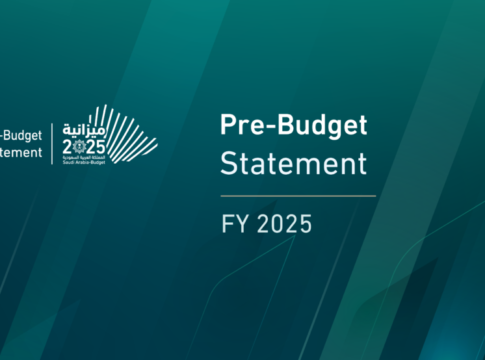In a bold move towards economic diversification and sustainable growth, the Saudi Ministry of Finance has announced the Pre-Budget Statement for the fiscal year 2025. The statement, released on September 30, 2024, outlines a financial framework that estimates total expenditures of SAR 1,285 billion and revenues of SAR 1,184 billion, resulting in a budget deficit of 2.3% of GDP. This fiscal strategy underscores the Kingdom’s commitment to its Vision 2030 goals, emphasizing a diversified economy beyond oil revenues.
Economic Growth and Sectoral Expansion
The budget’s cornerstone is fostering growth in non-oil sectors, a strategy that has already shown promise. The Kingdom’s GDP growth, projected at 4.6% for 2025, is significantly driven by burgeoning sectors such as tourism, entertainment, transportation, logistics, and industry. These sectors are instrumental in enhancing the quality of life, reducing unemployment to historic lows, and boosting international confidence in Saudi Arabia’s economic prospects.
Minister of Finance Mohammed Aljadaan highlighted the government’s unwavering commitment to strategic spending on essential services and transformative projects. These initiatives aim to empower the private sector, create jobs, and ensure sustainable economic development, reinforcing Saudi Arabia’s fiscal resilience.
Local finance expert Dr. Sara Al-Salem commented, “The focus on non-oil sectors is critical not only for economic diversification but also for establishing a resilient economic model that can withstand global oil market fluctuations. This budget reflects a strategic shift towards sustainable development.”
Mega Projects and Strategic Investments
Central to this vision are the giga projects led by the Public Investment Fund (PIF), including the iconic NEOM, which aspires to position Saudi Arabia as a global hub for entrepreneurship and innovation. NEOM’s “Magna” project on the Gulf of Aqaba is set to revolutionize sustainable tourism with its breathtaking destinations. Other key projects include the Red Sea Global, Qiddiya, Roshn Group’s urban developments, and the heritage-rich Diriyah project, each contributing to the Kingdom’s cultural and economic landscape.
These projects not only aim to attract millions of tourists but also promise substantial economic benefits, including job creation and GDP contributions, further underscoring the transformative potential of Vision 2030.
Economic analyst Faisal Al-Dossari noted, “Such large-scale projects are a testament to Saudi Arabia’s long-term vision. They are designed not just to spur immediate economic activity, but also to create lasting infrastructure that supports future growth. The focus on tourism and entertainment is particularly timely, given global trends.”
Financial Strategies and Sustainability
Saudi Arabia’s fiscal strategy is characterized by a blend of innovative financing and prudent fiscal management. The government plans to continue borrowing strategically to fund the budget deficit and repay existing debt, ensuring debt sustainability while maintaining fiscal flexibility. This approach is supported by robust economic reserves and a flexible spending policy designed to address future economic challenges.
Financial strategist Leila Al-Zahrani remarked, “The careful management of public debt and strategic borrowing plans highlight Saudi Arabia’s commitment to maintaining fiscal stability. This approach not only supports current financial needs but also safeguards future economic health.”
Empowering Sectors for a Vibrant Future
The government is also focusing on empowering key sectors through various funds, such as the Saudi Industrial Development Fund, which is driving industrial transformation, and the Tourism Development Fund, which is pivotal in enhancing tourism infrastructure. Additionally, the Saudi Exim Bank is expanding its credit solutions to boost non-oil exports, aligning with the Vision 2030 objective of increasing the share of non-oil exports in GDP.
In conclusion, Saudi Arabia’s 2025 budget is a testament to its strategic foresight and commitment to economic diversification. By investing in mega projects, enhancing sectoral capabilities, and maintaining fiscal discipline, the Kingdom is well-positioned to achieve sustainable growth and elevate its global economic standing. As the world watches, Saudi Arabia is poised to transform its economic landscape, setting a precedent for visionary economic planning.


